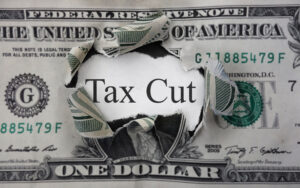Estate Planning for the Wealthy

Estate Planning for the Wealthy
When was the last time you looked at your estate plan? If you can’t answer that question, either because it’s been so long that you can’t remember or because you still don’t have an estate plan in place, then you have some work to do. With the New Year almost here, now is a great time to take a closer look at your estate plan, or to start one, if you haven’t already. Estate planning is important for everyone, especially if you have a lot of wealth and you want to control what happens to it after you pass on. To that end, let’s take a look at some of the important tips to keep in mind for your estate plan.
Estate Tax Could Be Eliminated
Before we get started, there is one important factor to be aware of regarding estate planning and taxes. Now that Donald Trump has been elected president, there could be some changes coming to the estate tax laws: namely, he wants to eliminate the estate tax completely. Currently, any assets that exceed $5.45 million are taxed at a 40 percent rate for one’s beneficiaries. That money would be tax-free if Trump’s proposal is passed.
Remember Your Will
One of the first steps you should take is to draw up a will. That seems like a no- brainer, but the fact is nearly 70 percent of all adults in America as of November of last year did not have a will. Without a will, your estate will end up being divided in probate court and likely won’t end up where you intended.
What About Beneficiaries?
Of course, you get to choose who inherits your money, so make sure you choose wisely and specify which assets go to whom. It’s always a good idea to reevaluate your plan whenever a major life change occurs, such as a new child, a divorce or marriage or a death in the family.
Trust the Trust
Setting up a trust is always a good idea if you have a large estate. Having a trust, with a trustee, allows you to determine how your assets are used and protect them from being abused or misused after you’re gone. There are several types of trusts, but permanent or irrevocable trusts usually provide the most tax benefits. However, when you place assets in such a trust they become the property of the trust, which means they are not subject to estate taxes.
Consider a Roth IRA
Another smart move for many people is to convert a traditional IRA to a Roth IRA. The money from a traditional IRA is taxable if it’s transferred to anyone other than your spouse. However, you can avoid this by slowly converting traditional IRA accounts to Roth IRA accounts.
Give it Away Before You’re Gone
One of the best ways to protect your money and other assets is to give it away before you pass away. You can give away up to $14,000 per person in gifts every year. Those gifts will decrease the value of your estate and they are tax-free for the recipients. You can also donate your assets to charitable causes, which also provides a nice tax break. For more estate planning ideas to protect your wealth contact GROCO for help.
Learning to Lead by Example
Learning to Lead by Example Each morning, the mirror reminds us of at least one person whose motives should meet all of our expectations. There is no limit to what an army of these individuals can accomplish. As you live your life if a way in which you are daily striving to reach your full…
America Taking Money From Its New Citizens?
America Taking Money From Its New Citizens? According to various government reports, there are literally trillions of dollars being hidden in offshore accounts by Americans who don’t want to pay their fair share of taxes. Of course, everyone should have to pay his or her fair share to Uncle Sam, but no one should be…
Where Can You Find the World’s Best Tax Havens?
Where Can You Find the World’s Best Tax Havens? What’s your next vacation location: the Caribbean Tahiti, Bermuda, Belize, the Virgin Islands, or perhaps the Cayman Islands? These are all great choices and many of the world’s wealthiest individuals not only get to travel to these exotic locations on a regular basis, but many of…
Enjoy Them While They Last: End of Bush Tax Cuts Could Throw U.S. into Deeper Recession
Enjoy Them While They Last: End of Bush Tax Cuts Could Throw U.S. into Deeper Recession A few Senate Democrats recently made noise over ending the Bush Tax Cuts in January 2011 given the country’s economic prospects. Although many people have predicted that the end of the Bush Tax Cuts is a foregone conclusion, a…




